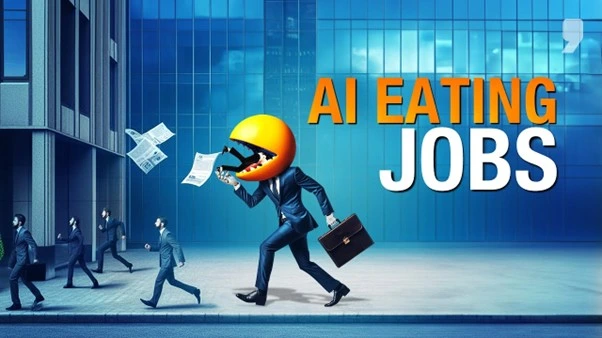Leading multinational technology company IBM has cut off 8,000 workers in a clear sign of the expanding influence of artificial intelligence on the global employment market; the most notable effect is felt in its HR division. The company’s action has sparked the discussion on the degree to which artificial intelligence is changing the contemporary workplace, by simplifying processes on one side and replacing human employees on the other.
IBM’s increasing dedication to artificial intelligence and the acceptance of automated technologies throughout its business help to explain this significant labour cut. Although significant, the layoffs are presented by the business as a strategic turn rather than only a cost-cutting action. Arvind Krishna, the Chief Executive Officer of IBM, underlined that the integration of artificial intelligence is not only a tool for downsizing but also a necessary component of improving internal procedures and reallocating funds to more strategic areas of expansion.
Krishna claims that the company’s internal systems have been much improved because to artificial intelligence and automation. IBM says it is maximizing workflows, increasing efficiency, and saving significant costs by automating administrative chores and repetitive procedures. These savings are subsequently reinvested in key areas such sales, marketing, and software development, areas essential for the company’s innovation and market growth.
Traditionally seen as a people-centric discipline, the human resources division of IBM was among the most impacted one. Apparently, IBM replaced about 200 HR roles with AI agents earlier this month. Previously the responsibility of human workers, these systems may now arrange data, direct staff members, and handle other regular administrative activities. This represents a major change since it indicates that artificial intelligence affects even knowledge-based and interpersonal functions.
IBM’s Chief Human Resources Officer, Nick Lamoreaux, aimed to be more in line by saying that the rise of artificial intelligence does not always translate into the whole loss of employment. Rather, he said, even as it makes certain current jobs obsolete, artificial intelligence should be considered as a tool that may enhance human capacities and generate new sorts of employment. Lamoreaux underlined that even if some jobs might be more suited for automation, human workers are still indispensable for strategic thinking, emotional intelligence, and complex decision-making.
Still, for the thousands of people who have been absent from work because of artificial intelligence, such guarantees provide little solace. The IBM layoffs are not an isolated event; rather, they reflect a larger trend in the tech sector and beyond. Businesses all around are using artificial intelligence technology more and more to keep competitive, lower running expenses, and improve output. From artificial intelligence-driven data analysis tools to customer care chatbots, automation is gradually taking front stage in corporate infrastructure.
IBM’s activities are typical of a time of transition in global labour dynamics. Companies experimenting with artificial intelligence are learning to reinterpret jobs and responsibilities, that is, from manual and repetitive tasks to more creative, analytical, or management ones. For many employees, this development causes major disturbance and uncertainty even while it promises a more creative and efficient workplace.
Although the argument about artificial intelligence and job displacement is not new, the speed at which businesses like IBM are shifting emphasizes the need of tackling their consequences. Although artificial intelligence can perhaps generate new job categories, analysts advise that many people may find the change difficult. Large-scale job losses without sufficient retraining programs, workforce planning, and ethical considerations in artificial intelligence deployment could aggravate socioeconomic inequality and cause general unrest.
Governments, universities, and businesses all over are now expected to foresee and control how artificial intelligence could affect employment. Ensuring that displaced workers may move into new roles that artificial intelligence cannot readily reproduce calls for workforce reskilling and upskilling. Moreover, ethical frameworks must be created to control the use of artificial intelligence in decision-making, especially in delicate sectors as recruiting, employee appraisal, and termination.
The recent layoffs of IBM act as a real-time case study on the prospects and difficulties posed by artificial intelligence. One could argue that the business is using modern technologies to increase competitiveness and simplify processes. Conversely, it is fuelling the rising concern about employment stability in a society going more and more mechanized. Whether businesses can use artificial intelligence in a way that enhances rather than replaces human ability will be the main subject of importance going ahead.
The age of artificial intelligence-driven transformation has really started. IBM’s decision to cut 8,000 staff members is a strong indication of how fast this technology is altering the structure of the company. AI calls for a re-evaluation of how work is valued and organized even while it offers efficiency and invention. The world must get ready for a new paradigm whereby humans and robots coexist rather than in rivalry as more businesses follow IBM’s road of action. Making this change fair, inclusive, and sustainable for all will present challenges.







